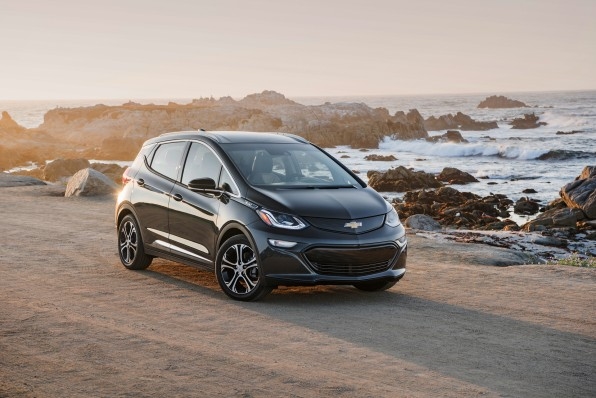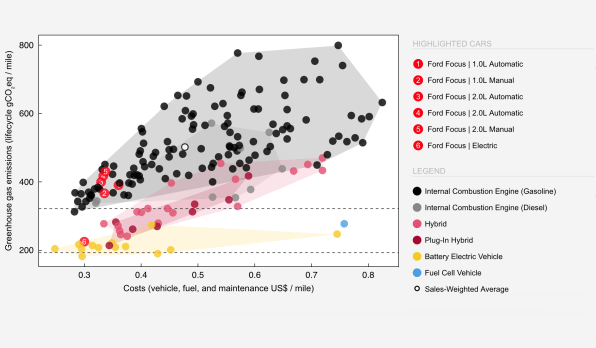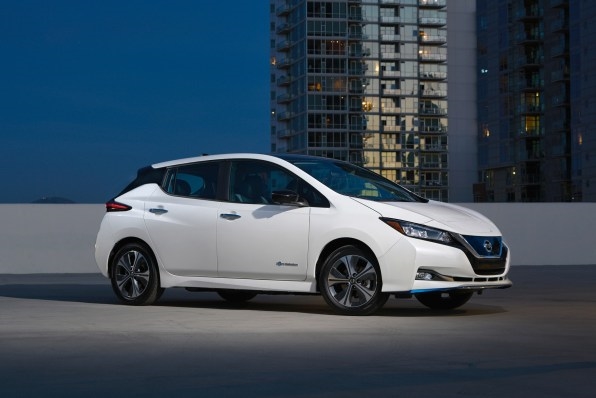The telephone should have been an instant hit. It revolutionized human communication overnight, and yet it took decades to catch on. AT&T president Theodore Vail blamed meager sales on public ignorance. No one knew how to use the phone, he said. Salesmen needed to tell “the new subscriber what to do with his telephone . . . and to make him ashamed to consider such a thing as ever again doing without it.” Salesmen who once sold the phone as a high-tech tool for businesses began to market it as a way for consumers to chat with friends and family. Only then did it really take off.
This can be the challenge with any new technology. The public has to be educated about how it works?–?and how it will make their lives easier. Take electric cars. Safe, clean, technologically sophisticated electric vehicles (EVs) are losing out to gas-powered cars and trucks. A big part of the reason is that consumers know almost nothing about them.
“A lot of research has shown that American car buyers don’t know much about electric vehicles, and thus they regard them as a novel, unusual technology,” says David Greene, a professor of civil and environmental engineering at the University of Tennessee. “It’s a well-known theory in market research that the majority of consumers are reluctant to purchase a novel technology.”
Surveys show that most Americans can’t name a model of electric car, much less explain how it works. For now, the EV market is limited to early adopters?–younger, wealthier drivers who want to own the latest tech. The average buyer is still wary of plug-in vehicles.

[Photo: Chevrolet]
Consumers cite the limited range of EVs as a reason for favoring gas-powered cars, but this concern is largely unfounded. “You just develop slightly different habits,” Greene says. “When you go home and you park your car in the garage, you say, ‘Where am I going tomorrow? Oh, yeah. Better plug it in.’”
Research shows that even lower-end EVs have enough range to meet about 90% of driving needs. This holds true across cities as varied as New York and Houston. “You’ve got EVs that have ranges of hundreds of miles, and people have a 30-mile commute,” said Nick Sifuentes, executive director at Tri-State Transportation Campaign. “A lot of people will never use the full range of their electric vehicle. They’re just not going to get anywhere close in their daily commute.”
Just as consumers underestimate the needed range of electric vehicles, they also overestimate the cost. Electric cars are often cheaper than gas-powered cars when accounting for fuel, repairs, and other expenses. Researchers evaluated the lifetime cost of various cars and found that electric vehicles are often cheaper than comparable gas-powered vehicles. “The reason is that the lower fuel costs of EVs relative to gasoline-fueled cars compensate for the higher vehicle costs of EVs,” said Jessika Trancik, a professor of energy studies at MIT. A battery-powered Ford Focus, for example, will prove less expensive over the course of its life than a gas-powered Ford Focus.

The growth of electric cars is doing little to improve public understanding. In California, for example, the number of EV models on sale roughly doubled between 2014 to 2017, as did the number of public charging stations. And yet drivers remained ignorant of how EVs are fueled, and which plug-in cars were available for purchase. Research shows that hands-on experience is crucial to winning support for electric cars, as few Americans have ever even driven one.
“I still have friends who will say, ‘Oh, you have an electric car. That’s going to be really slow and not interesting to drive.’ And I say, ‘What do you mean? Zero to 60 in six and a half seconds or so. And there’s no shifting gears. It’s just?–vroom,’” Greene says. “They don’t know. They’ve never been in an electric car.”
Perceptions may change as automakers start to produce vehicles that conform to American standards. “The first manufacturer to come out the gate with a really great-looking SUV that is completely electric will have a great car on their hands,” Sifuentes says, noting that automakers are already making progress on this front. “The more that they look familiar to a consumer, I think the better off and the easier that transition is going to be.”

[Photo: Nissan]
For now, consumers interested in purchasing an EV cite environmental benefits?–?not speed, safety, cost or convenience–as the primary motivator. Consumers see electric cars as the green choice, not the smart choice or the sexy choice. Automakers could market EVs based on the fact that they are safer, cheaper, and need less maintenance, but instead they market them as the environmentally friendly option, or worse, they don’t market them at all.
That’s a problem because pollution from cars, trucks, buses, and planes makes up the largest share of U.S. carbon pollution. To rein in climate change, Americans will need to change the way they get around. While EVs largely run on electricity generated by coal- and gas-fired power plants, they are nonetheless cleaner than conventional vehicles almost anywhere in the U.S.
Unfortunately, electric cars still account for less than 3% of U.S. auto sales. Analysts project that by 2050, EVs will make up the bulk of U.S. car sales, but that won’t happen on its own. Automakers will need to overhaul production to focus on electric cars. Policymakers will need to spur the buildout of EV charging stations. And, perhaps most importantly, drivers will need to fall in love.
Jeremy Deaton writes for Nexus Media, a syndicated newswire covering climate, energy, policy, art and culture. You can follow him @deaton_jeremy.
This article is part of a series about barriers to the widespread adoption of electric cars.
(68)